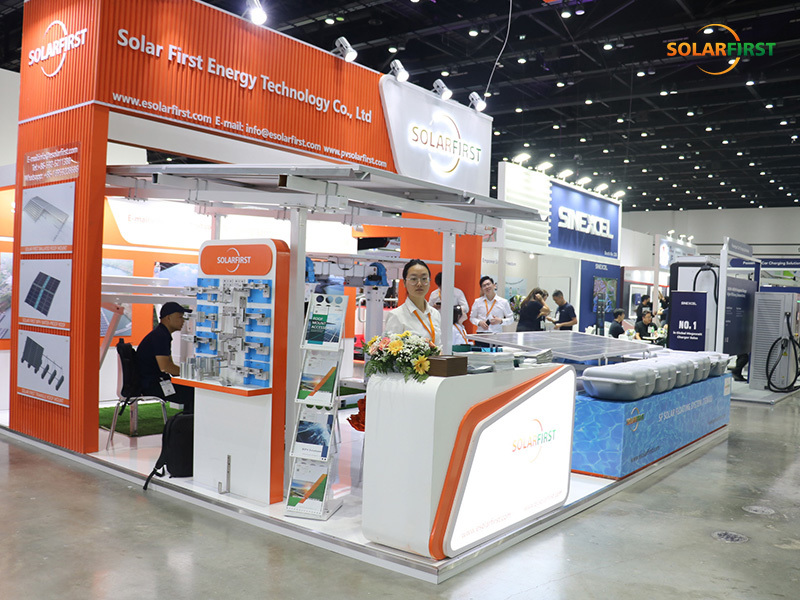Tel: +86 592 5211 388 / Email: info@esolarfirst.com
Understanding PV Off-grid Systems: A Comprehensive Guide
Release time:
Aug 19,2025
A PV off-grid system, or photovoltaic off-grid system, is designed to harness solar energy for use in areas not connected to a public electricity grid. This type of system is ideal for remote locations, recreational vehicles, and emergency backup solutions. Understanding the operational mechanics, components, and advantages of PV off-grid systems can empower users to make informed decisions about their energy needs.
At the core of a PV off-grid system is the solar panel, which captures sunlight and converts it into electricity. This electricity is then routed to a charge controller, an essential component that regulates the voltage and current coming from the solar panels to prevent overcharging the batteries. The energy stored in batteries provides a reliable power source during periods of low sunlight or at night.
Batteries play a crucial role in the functionality of PV off-grid systems. They store energy generated during the day for use when solar production is not possible. Deep-cycle batteries are commonly used in these systems because they are designed to be discharged and recharged multiple times without significant degradation. Proper battery maintenance and management are vital for ensuring longevity and efficiency.
Another significant component of a PV off-grid system is the inverter. The inverter converts the direct current (DC) electricity generated by the solar panels and stored in the batteries into alternating current (AC) electricity, which is what most household appliances use. Selecting the right inverter is essential to ensure it can handle the system's power output and meet the energy demands of connected devices.
One of the primary benefits of a PV off-grid system is energy independence. Users are not reliant on public electricity grids, making it an attractive option for those living in rural or isolated areas. This independence not only offers reliability in energy supply but also often leads to long-term cost savings, particularly as solar technology continues to improve and become more affordable.
Additionally, PV off-grid systems contribute to environmental sustainability. By utilizing renewable energy, users reduce their carbon footprint and dependence on fossil fuels. This eco-friendly approach aligns with a growing global emphasis on sustainability and renewable energy sources.
Finally, the installation and maintenance of PV off-grid systems can vary based on individual energy needs and location. While DIY solutions are possible for those with technical knowledge, professional installation is advisable for optimal performance and safety.
In conclusion, PV off-grid systems present a compelling solution for individuals seeking reliable and independent energy sources. By understanding the key components and benefits, users can make educated choices that align with their energy requirements and environmental goals.
Solar First Energy Technology
Performance & Innovation, Customer Focus, Respect Nature & Love Human, Spirit of Contract
CONTACT INFORMATION
Add: 23rd Floor, Building F14, Software Park Phase III, Jimei District, Xiamen, China
Tel: +86 592 5211 388
Mobile: +86 189 5920 8686
Email: info@esolarfirst.com

OFFICIAL WECHAT
All Rights Reserved © 2024 Solar First Energy Technology Co., Ltd.
Cookie
Our website uses cookies and similar technologies to personalize the advertising shown to you and to help you get the best experience on our website. For more information, see our Privacy & Cookie Policy
Cookie
Our website uses cookies and similar technologies to personalize the advertising shown to you and to help you get the best experience on our website. For more information, see our Privacy & Cookie Policy
These cookies are necessary for basic functions such as payment. Standard cookies cannot be turned off and do not store any of your information.
These cookies collect information, such as how many people are using our site or which pages are popular, to help us improve the customer experience. Turning these cookies off will mean we can't collect information to improve your experience.
These cookies enable the website to provide enhanced functionality and personalization. They may be set by us or by third-party providers whose services we have added to our pages. If you do not allow these cookies, some or all of these services may not function properly.
These cookies help us understand what you are interested in so that we can show you relevant advertising on other websites. Turning these cookies off will mean we are unable to show you any personalized advertising.

